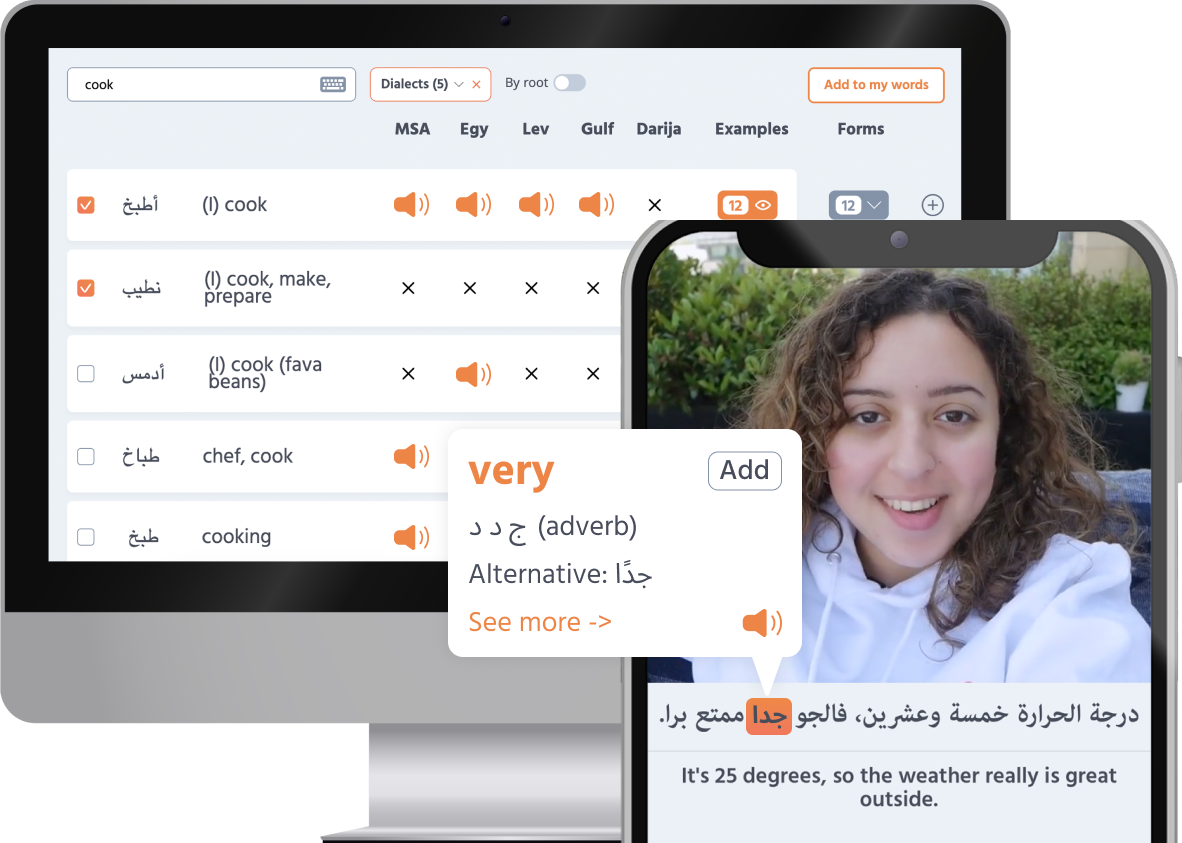Ever thought about how to survive a week in the Arabic-speaking world? Whether you’re planning a vacation, dabbling in the language, trying to understand Arab culture , or just love picking up fun facts, knowing the days of the week in Arabic is an essential trick up your sleeve. Sit tight and let Playaling explain all the nuances!
Work on Sunday?! More important than knowing the names of the days in Arabic is realizing that you need to wake up early and go to work on Sunday because that’s the first day of the week in the Arab World. So, say goodbye to your Sunday brunch! Oops, and those late Saturday night outs? You’ll miss them too, but you can enjoy them on Thursday instead, which is the last day of the week in Arab countries. Or on Friday, since Saturday is a holiday too.
The reason behind this is the fact that Friday is a holy day for Muslims, when many faithful go to a mosque to pray, in contrast to Christians, who worship on Sunday, and Jews, who worship on Saturday. Therefore, in most Arab countries, the weekend typically falls on Friday and Saturday, although Lebanon, Tunisia, Morocco, and the United Arab Emirates follow the western weekend, which is Saturday and Sunday. Not long ago, Saudi Arabia and Oman actually had their weekend on Thursday and Friday, which they changed in 2013 to have more overlap with their neighbors and the rest of the world.
The days of the week in Arabic Here are the days of the week in Standard , Egyptian , Levantine , Gulf , and Maghrebi Arabic. Listen to them and note how they’re quite similar!
English
Standard
Egyptian
Levantine
Gulf
Maghrebi
Sunday
الأَحَدْ
الحَدْ
الأَحَدْ
الأَحَدْ
الْحْدْ
Monday
الاثْنَيْنْ
الاتْنِيْنْ
التَنِيْنْ
الاثْنِيْنْ
التْنِيْنْ
Tuesday
الثُّلَاثَاءْ
التَّلاَتْ
التَّلاتَا
الثَّلَاثْ
الثُلُاثَاءْ
التْلَاتْ
Wednesday
الأَرْبِعَاءْ
الأَرْبَعْ
الأَرْبَعَة
الارْبَعْ
الأَرْبِعَاء
لَرْبْعْ
Thursday
الخَمِيْسْ
الخَمِيْسْ
الخَمِيْسْ
الخَمِيْسْ
لْخْمِيْسْ
Friday
الجُمْعَة
الجُمْعَة
الجِمْعَة
الجُمْعَة
الجْمْعَة
Saturday
السَّبْتْ
السَّبْتْ
السَّبْتْ
السَّبْتْ
السّْبْتْ
Get free Arabic videos with interactive captions for your level
Get free videos
These days come from numbers Most of them derive from their order in the week. Once you get a hang of this pattern, you’ll have a nice shortcut to memorizing them.
Standard Arabic
Pronunciation
English
واحِد wahed
One
اثْنَان ithnan
Two
ثَلَاثَة thalatha
Three
أَرْبَعَة arba’a
Four
خَمْسَة khamsa
Five
Historical insight: origins of the seven-day week The seven-day week has its origins in the Middle East, specifically ancient Mesopotamia (modern-day Iraq) around 4,000 years ago. It was adopted by the Hebrew calendar and spread to other cultures through the Babylonian Empire and Judaism. When the Roman Empire became Christian, it officially established the seven-day week, designating Sunday as the day of rest and worship, contrasting with Saturday for Jews, and making it a public holiday.
Each monotheistic religion chose a different day of significance: Jews observe Saturday, inspired by the creation narrative in Genesis; Christians celebrate Sunday to commemorate the resurrection of Jesus; and Muslims honor Friday. The Prophet Muhammad emphasized Friday’s importance, saying, “The best day on which the sun has risen is Friday; on it Adam was created, on it he was made to enter Paradise, on it he was expelled from it, and the Last Hour will take place on no other day than Friday” (Sahih Muslim). These choices have significantly shaped the modern weekend.
Understanding the days of the week goes beyond vocabulary—it offers insight into the rhythms of the modern world. In many Arab countries, the weekend starts on Friday, with Sunday marking the beginning of the workweek. This knowledge is crucial for travel, work, or engagement with Arabic-speaking communities.
Aligning your schedule with the local week structure helps avoid closed businesses on weekends, handle official matters effectively, and plan social activities when everyone is available. It prevents social faux pas, such as scheduling gatherings on Fridays when many attend mosque services. Ultimately, mastering the days of the week in Arabic enhances logistical planning and deepens cultural engagement, making your interactions in the Arab world more meaningful and respectful.
Oh, and by the way… If learning Arabic at your own pace, with fun, real-world videos sounds like your style, then Playaling could be exactly what you’re looking for!
With Playaling, you’ll dive into any major Arabic dialect or MSA. Our diverse range of videos has it all—from everyday conversations and cultural moments to music videos, TV and movie clips, influencer content, news broadcasts, and inspiring talks.
Our interactive captions let you tap any word for instant translations, context, and audio. So, real Arabic content becomes accessible with just a click. Miss something? No problem—rewind and listen as often as you need, or hover over subtitles for quick definitions.
Spot a word you want to learn? Save it to your personalized word set, or dive into curated sets for focused practice and easy review.
Interactive exercises let you dive in and practice what you’ve learned.
Need to look something up? The Audio Dictionary has you covered with clear human pronunciations and real world examples.
It’s a learning experience that keeps you engaged, bringing authentic, real-world Arabic closer to you every step of the way.
Give it a try!









